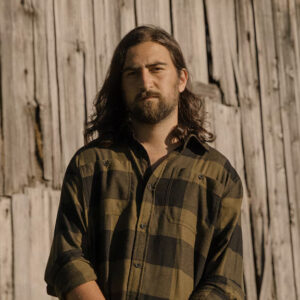New Englander Noah Kahan is connecting with fans by being honest about himself
The Boston Globe | May 25, 2023
Singer-songwriter Noah Kahan’s music floats between indie, folk, pop, and rock with lyrics so deeply personal it’s as if he’s curating an auditory journal. He details his challenges of managing anxiety and depression and feeling isolated in his hometown of Strafford, Vt., on his 2022 album “Stick Season.”
“Writing something down that I’m struggling with makes it feel less scary or more manageable,” says Kahan, 26. “I try to be honest in my songs because it helps me cope. It also helps me, hopefully, connect with people that are going through the same things.”
He recently announced he will be releasing “Stick Season (We’ll All Be Here Forever),” a deluxe version of his album with seven new songs — including his TikTok teased “Dial Drunk” — on June 9. But before then, Kahan, who lives in Watertown, will be playing Boston Calling’s Green Stage on Saturday.
He jumped on a Zoom with the Globe to discuss his first songs as an angsty 8-year-old, the art of being vulnerable, and his deep roots in New England.
Q. I saw that your father is a musician. How did that influence your musical journey growing up?
Q. You started writing songs at 8 years old. What was your first song about?
A. My first song was about being on a boat in a river — I can’t really remember what the conflict and the resolution was. I was listening to a lot of Green Day and early 2000s punk rock, and my songwriting took a very depressing turn. I wrote a song about how I hated Wednesdays, and I played it at my school talent show. It definitely made people concerned for me, and a lot of my early songwriting was very sad and dark and involved things that I was miserable about as an 8-year-old, which I can’t imagine I had much to complain about.
Q. “Stick Season” went viral, detailing the very personal emotions of a breakup and the pain that comes with that. How are you able to be so vulnerable in your songwriting?
A. Being vulnerable is incredibly important. When I was younger, I dealt with depression and anxiety and body dysmorphia and some disassociation. I remember hearing people saying [about my music], “That connected with me, and I felt heard for the first time. I didn’t feel alone.” It makes me realize that no matter how uncomfortable or awkward it feels to be vulnerable or expose my insecurities to the world, if it can help one person feel less scared or less alone, then it’s worth the discomfort.
Q. You have talked in previous interviews about how isolating it is to grow up in a small town. How have those feelings been infused into your music?
A. I didn’t love school. I was always telling jokes and being obnoxious. I think it was because I was really bored. I felt like I had to create an escape for myself from the monotony of where I was and what I was doing. That boredom led to creating worlds and thinking about things from a storytelling perspective and being hyperbolic about things because it was exciting. The isolation definitely led to an extreme sense of imagination, and that has found its way into my songwriting.
Q. What emotions were you working through in your EP “Cape Elizabeth”?
A. I had gotten home when the pandemic started. I went back to Vermont, and I left New York, so I felt like the world was ending. I felt like I just had to do what I always wanted to do, which is make folk songs and write for fun and play for my fans. I spent a lot of my life feeling a little bit lost or confused, and I felt connected more to the world because people were all in this state of confusion.
Q. What is “Strawberry Wine” about? Tell me about the lyrics, “If I could lose you, I would.”
A. “Strawberry Wine” started when I heard my granddad talk about [cremating] his father. They walked the ashes into a town in Wyoming, up a big mountain, where his dad always wanted to go, and I thought of that as a really incredible act of love. To me, love is being in a car and looking up at the stars as you drive down a dirt road in Vermont and just the beauty of that moment. The line “If I could lose you, I would,” it’s just about the way someone lingers in your head even after they’re gone. It’s about love and loss and remembering the people you love and why you love them.
Q. What are you most excited for at Boston Calling?
A. I live in Watertown, so Boston Calling is my hometown show, and it’s just a really cool opportunity, and the gratitude for it all is never lost on me.
Q. What goes through your mind when you walk on stage?
A. I have to go into survival mode. If I let that moment completely wash over me, I’ll be overwhelmed. I definitely get some pretty serious impostor syndrome of like, “Why am I here? Did they accidentally think that I was Ed Sheeran?” So I try to be grateful and remember why I’m there and, most of all, give the people that are listening a performance to remember.
Q. What’s something you haven’t been asked about that you wish someone would ask?
A. I always think it’s interesting for me to go back to my hometown after making an album centrally about where I’m from. It’s been a very interesting experience going back and feeling like a tourist. I wrote about something very personal to me, and I shared it with the world, and it changes my relationship with it.
